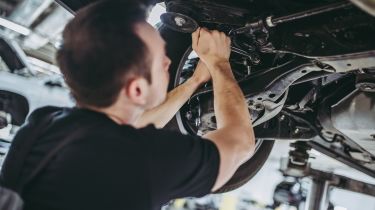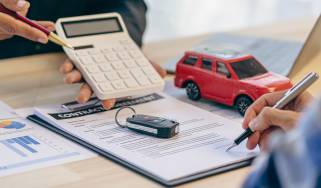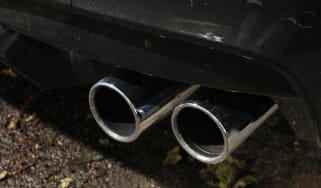Fake car parts warning: top tips to avoid joining the 15% of motorists who fall victim
The IPO’s ‘Fake Always Breaks’ campaign warns motorists not to be drawn in by the attractive prices of potentially deadly counterfeit car parts

Drivers are being warned to steer clear of counterfeit car parts as it’s revealed that one in six motorists have bought a fake component in the last year, potentially putting themselves and other motorists at risk.
The new campaign from the Intellectual Property Office (IPO), Fake Always Breaks, is designed to raise awareness of phoney spares. As part of this, the IPO surveyed 1,400 people, and of the 15 per cent that admitted to buying a counterfeit car part in the past 12 months, a quarter bought car batteries, while almost one in five bought knock-off tyres and wheels.
While one of the most common reasons for buying counterfeit parts was their cheaper price, what some buyers may not realise is that some of these components don’t undergo the same safety testing as their genuine equivalents. This is concerning in the case of motorists buying counterfeit batteries or tyres, because the former could short circuit a car’s electrical system or even explode, while non-genuine tyres could affect grip and braking distance.
Another commonly purchased fake car part is airbags. After a tip-off from the U.S Homeland Security, the City of London Police recently seized as many as 500 counterfeit airbags masquerading as the genuine article from Mercedes-Benz. These had reportedly been sold for as little as £25 each and were imported to the UK from China to be sold to buyers abroad.
Detective Chief Inspector Emma Warbey explained that, given such items likely haven’t undergone the strict safety testing, “there's a real possibility that they won’t inflate during a road traffic collision, or will deploy in error.”
“Counterfeiting a device designed to save lives demonstrates the lengths that criminals will go to make money and their disregard for the safety of the people who will end up using these products,” Detective Warbey continued.
Of course, it’s a common mistake to buy a counterfeit product online without knowing it isn’t the real deal; just under half (42 per cent) of those who said they’d bought counterfeit parts thought they were genuine, with some finding out through service checks or after the product broke.
The IPO’s Director of Enforcement, Miles Rees, described counterfeit car parts as “illegal to sell and very dangerous to motorists and other road users”.
“As we enter the darker, colder, icier months, driving can become more hazardous,” he said. “This is why it is now more important than ever to highlight the dangers of fakes to motorists and help make every journey as safe as it can be.”
How to spot and avoid fake car parts
1. Price
If the price looks too good to be true, it probably is; fake car parts typically use substandard materials and are thus a lot cheaper. However, you get what you pay for and we recommend spending out extra for genuine OEM parts instead.
2. Guarantee
Manufacturers will typically provide their parts with a certificate of quality and authenticity; if you’re not provided with this, the part you’re buying could be fake. Such parts can also be traced if there’s a manufacturing defect or recall – something that’s not the case with counterfeit equivalents.
3. Seller
We recommend buying your parts through your trusted local or Chartered Trading Standards Institute (CTSI)-approved garage, rather than a random website online. The experts will know exactly what your car needs, with fake parts likely not covered under any warranty they might offer. If you must buy online, make sure you purchase through a reputable and well-known company.
4. Specifications
Genuine parts are specific to your exact vehicle, whereas to maximise profits, fakes are usually a one-size-fits-all affair. These may not fit your car properly and could end up damaging other components during the fitment process or over time. One-size-fits-all parts may also not work with your car’s systems, potentially putting you or other road users in danger.
5. Report suspected fakes
The best way to protect yourself (and others) is to minimise the number of fake parts available on the market. Most reputable sites – such as eBay Motors – will allow you to report suspected ones, while the IPO advises buyers to also report such findings to Crimestoppers and/or Trading Standards.
Have you ever had an experience with counterfeit car parts? Let us know in the comments below...








